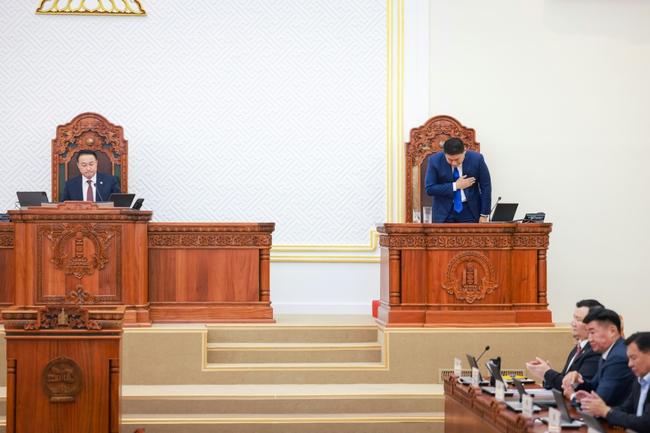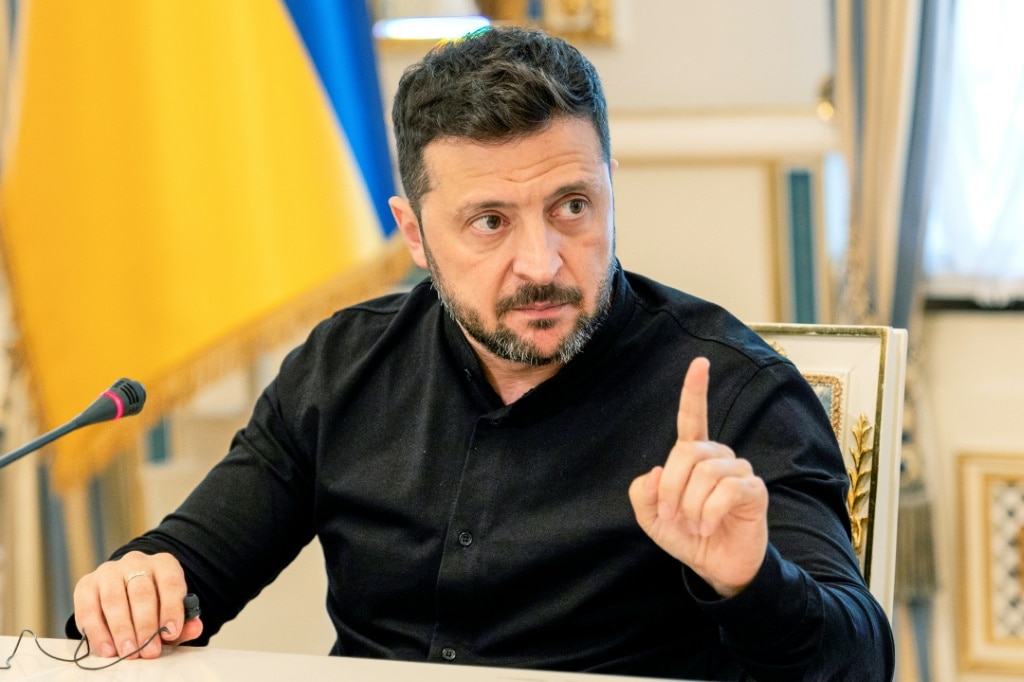Mongolia PM resigns after anti-corruption protests
Mongolia PM resigns after anti-corruption protests

Breaking News
Don't miss out on the headlines from Breaking News. Followed categories will be added to My News.
Mongolian Prime Minister Luvsannamsrain Oyun-Erdene resigned on Tuesday following weeks of anti-corruption protests in the country's capital.
The landlocked democracy in northern Asia has battled deep-seated corruption for decades, with many arguing that wealthy elites are hoarding the profits of a years-long coal mining boom at the expense of the general population.
Frustrations have flared since last month as public suspicions over the supposedly lavish lifestyles of the prime minister's family have fuelled persistent demonstrations in the capital Ulaanbaatar.
Oyun-Erdene announced his resignation on Tuesday after losing a confidence vote among lawmakers, according to a parliamentary statement.
"It was an honour to serve my country and people in times of difficulties, including pandemics, wars, and tariffs," he said after the result of the secret ballot was announced to parliament.
He will remain as caretaker prime minister until his successor is appointed within 30 days.
Dozens of young people gathered on the square outside the parliament building on Tuesday, holding white placards reading "Resignation is easy" -- a popular slogan at recent protests.
Several voiced pride that they had taken a stand against what they described as deeply embedded corruption and social injustice.
"The youth protest has achieved great results. I'm so proud of the future of Mongolia," participant Unur Sukhbaatar, a 37-year-old political economy researcher, told AFP.
"The public wants more stable governance with ethical politicians... protesting and unifying our voice for systemic change (shows) that Mongolian democracy is alive," he told AFP.
Some counter-protesters -- overwhelmingly older than their pro-opposition counterparts -- have also turned out to support Oyun-Erdene in recent weeks.
- Secret ballot -
Julian Dierkes, a Mongolia expert at Germany's University of Mannheim, said he "(didn't) expect any successor to adopt substantially different policies" from Oyun-Erdene, including on corruption.
His ouster "may mean the resurgence of factional politics in his party" after years of comparative stability at the top of Mongolian politics, Dierkes told AFP.
Oyun-Erdene has denied the corruption allegations, and in an address to parliament before the vote, blamed "major, visible and hidden interests" for waging an "organised campaign" to bring down the government.
He had also warned of political instability and economic chaos if forced out of power.
But it was not enough as only 44 lawmakers voted to retain confidence in him, with 38 against.
That did not reach the 64-vote threshold required from the 126-seat parliament, prompting Oyun-Erdene to stand down.
- Gen Z power -
The move pushed the country's fractious political scene into further uncertainty.
Mongolia had been ruled by a three-way coalition government since elections last year resulted in a significantly reduced majority for Oyun-Erdene's Mongolian People's Party (MPP).
But the MPP evicted the second-largest member, the Democratic Party (DP), from the coalition last month after some younger DP lawmakers backed calls for Oyun-Erdene's resignation.
DP lawmakers walked out of the parliamentary chamber during the confidence ballot.
Munkhnaran Bayarlkhagva, a political analyst and former adviser on Mongolia's National Security Council, said protesters had effectively helped force a vote on "the legitimacy of the (country's) political system".
"The Mongolian Generation Z showed they are willing and able to be a politically engaged, mature and active electorate," he told AFP.
"The Mongolian political establishment had no choice but to comply to retain popular support."
- 'Strong reminder' -
Sandwiched between regional giants China and Russia, Mongolia was a communist state during the Cold War, but has transformed into a democracy since the collapse of the Soviet Union.
Since Oyun-Erdene took power in 2021, Mongolia's ranking in Transparency International's Corruption Perceptions Index has dropped.
Concerns over the economy and rising living costs have also stoked unrest.
The protests against Oyun-Erdene began in May following accusations of lavish spending by his son, whose fiancee was reportedly seen with expensive gifts on social media.
"Parliament showed they can put the public interest above party needs," small business owner Erchissaran Ganbold, 28, told AFP at Tuesday's protest.
"This demonstration is a strong reminder for politicians to be accountable and transparent in the future."
str-mjw/reb/sco
Originally published as Mongolia PM resigns after anti-corruption protests


